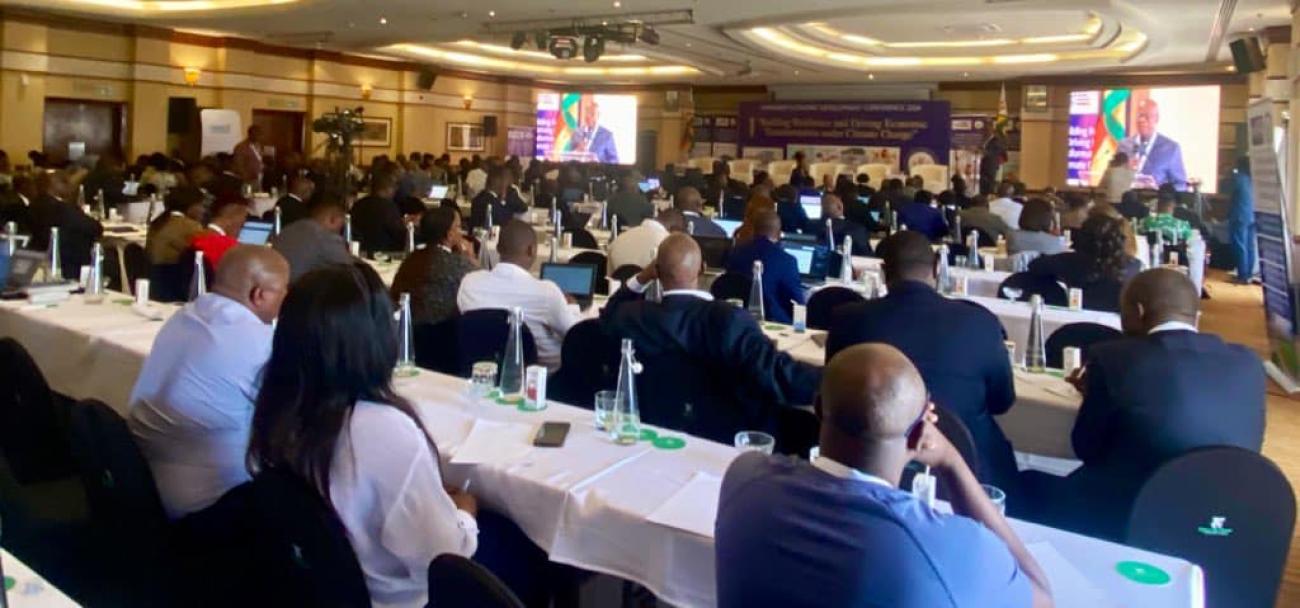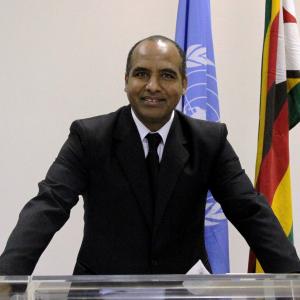15 September 2024, Victoria Falls - At the just opened 2024 Zimbabwe Economic Development Conference, UN Resident and Humanitarian Coordinator, Mr. Edward Kallon, addressed the alarming impacts of climate change, particularly the devastating El Niño-induced drought, which has resulted in Zimbabwe's worst cereal production drop in forty years—down by 77%, leaving about 60% of the population facing food insecurity.
Mr. Kallon emphasized the urgent need for immediate resource mobilization to foster a resilient economy. “The urgency of our task cannot be overstated,” he stated, urging Zimbabwe to effectively utilize both domestic and international resources to bridge the climate adaptation financing gap.
He stressed the importance of integrating climate projects into the national budget and engaging the private sector to boost investments in renewable energy, climate-smart agriculture, and sustainable community and national infrastructure.
Outlining four essential areas for action, Kallon highlighted:
1. Mobilizing Resources for Climate Resilience: Seeking engagement from international financial institutions and advocating innovative funding solutions like green bonds for crucial climate initiatives.
2. Ensuring Effective Resource Utilization: Establishing a governance framework for transparency and investing in community capacity building.
3. Catalyzing Coordination and Collaboration: Promoting partnerships across governments, NGOs, and the international community to streamline efforts in addressing climate impacts.
4. Proactive Disaster Preparedness: Praising the government’s declaration of a State of Disaster and the need for enhanced early warning systems and strategic food reserves.
In the context of financial constraints, Mr. Kallon highlighted the critical need for debt relief and restructuring to unlock Zimbabwe’s potential in critical sectors such as food systems; education; jobs and social protection; energy; digital connectivity; and climate change, biodiversity and pollution.
He echoed UN Secretary-General Mr. Antonio Guterres' call for a comprehensive reform in the global financial system to establish equitable growth opportunities for developing nations like Zimbabwe.
The Zimbabwe Economic Development Conference provides a platform for stakeholders to align their advocacy efforts for climate resilience and economic transformation.
Mr. Kallon concluded with an optimistic outlook, emphasizing that through collaborative strategies and community resilience building, Zimbabwe can navigate climatic challenges, ensuring no one is left behind.
The conference takes place from September 14 to 18, 2024, under the theme: "Building Resilience and Driving Economic Transformation under Climate Change," is organized by the Ministry of Finance, Economic Development, and Investment Promotion.
Senior Government officials, private sector representatives, academics, and development partners are attending to discuss strategies for economic adaptation in the face of unprecedented climate challenges and the expected La Niña weather phenomenon.
As discussions progress, the dedication of all stakeholders will be crucial in the implementation of agreed-to findings and recommendations and advance the Sustainable Development Goals and achieve the country’s vision to become an upper-middle-income society by 2030, amid the ongoing threats posed by climate change.




